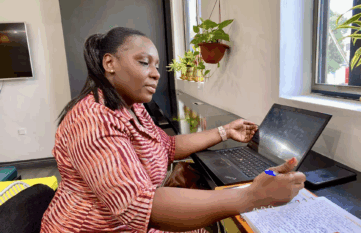Lucía lives on the outskirts of Mexico City. She would like to work regularly and thus be more financially independent. However, as a mother of several children, she has very little time besides household chores and education. She would like to take her youngest to a kindergarten, but it is too poorly connected to get from there to her workplace in a timely manner.
Gender inequality manifests itself in many areas of daily life. One of these is the unequal distribution of unpaid care and household work, which disproportionately burdens women. On average, a woman in OECD countries spends almost twice as much time on these tasks as a man. In Mexico, this burden is even greater. For Mexican women, the time spent on caregiving and housework is 2.5 times higher than for men. This disproportionate burden hinders women’s participation in economic and social life and limits their financial autonomy. Further, it perpetuates and perpetuates traditional gender roles and gender inequality.
In Lucia’s case, improved access to public childcare could increase her chances of participating in the labor market. This would require opening kindergartens with sufficient capacity in her neighborhood, as well as providing adequate public transportation. This requires policy decisions based on accurate information about the situation of women in unpaid care work, for example, through a geographic analysis of child care supply and demand. Unfortunately in developing countries, such data are not always sufficiently available to the relevant authorities.
To address this challenge, the Data4Policy initiative of the German Federal Ministry for Economic Cooperation and Development is helping governments in partner countries incorporate data more fully into their decision-making processes. In Mexico City, Data4Policy is working with the regional Agenda 2030 Mexico initiative to find out what obstacles women face in finding paid work. A combination of crowdsourced data from a WhatsApp chatbot, satellite imagery and survey data will be used to generate information that will support the city government in further policy-making. For example, statements could be made about where kindergartens and bus routes need to be established so that women like Lucia can pursue paid work.
Evidence-informed policy decisions are essential to advancing issues such as gender equality, climate justice, and human rights in general. Data4Policy is therefore active globally in a wide range of sectors and is working with UNDP to create a tool to support policymakers in their work with data.



